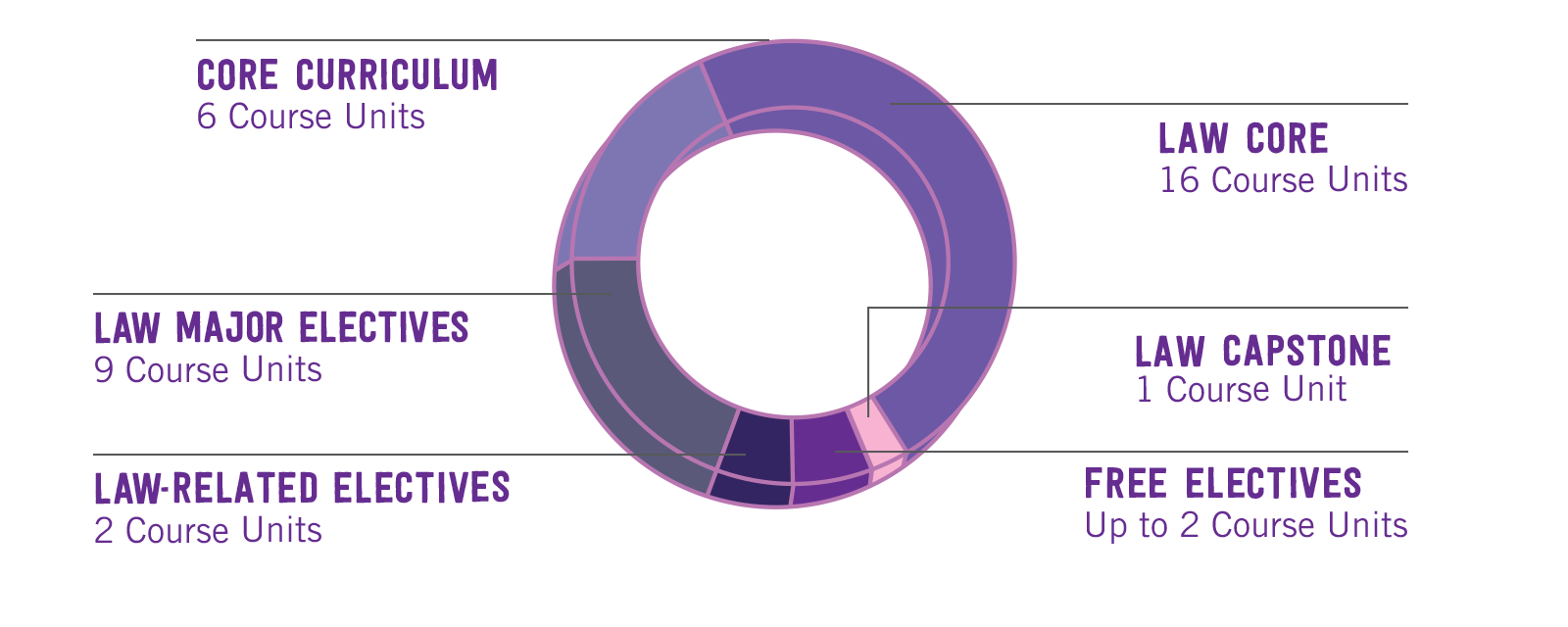About the Curriculum
Our curriculum has been carefully designed to equip students with both the knowledge and the practical skills they need to thrive in the future of legal practice. We explore not only cutting-edge issues such as the intersection between law and technology, but also how traditional laws cope, and may need to evolve, in order to remain relevant. Our teaching is conducted through SMU’s unique system of seminars, in which an instructor leads a small group of students through interactive discussions. This helps our students acquire knowledge while practising how to communicate it effectively, discuss it critically, and deploy it to solve problems.

Additional Graduation Requirements: Digital Technology/Data Analytics (D/D), Sustainability, and Singapore and Asia Studies.
Students can meet each graduation requirement by enrolling in specific courses, or, in select Schools, through programme or major core courses where the relevant content has already been integrated to meet the graduation requirement.
This is an outline of our curriculum. For more details, including an indicative list of modules, please see our brochure
Capabilities (2 Course Units)
Students will fulfil the following requirements:
- Managing
- Modes of Thinking
- Internship (non-credit bearing)
Communities (2 Course Units)
Students will fulfil the following requirements:
- Cultures of the Modern World
- Technology, Science and Society
- Community Service, including law-related pro bono service for LLB students (non-credit bearing)
Civilisations (2 Course Units)
Students will fulfil the following requirements:
- Big Questions
- Ethics and Social Responsibility
- Global Exposure (non-credit bearing)
Law Core (16 Course Units)
- A solid foundation of legal knowledge and skills.
Law Major Electives (9 Course Units)
- Broaden or deepen your knowledge, whether about the law of Singapore or beyond.
Law Related Electives (2 Course Units)
- Non-legal knowledge and skills which we believe are vital for the modern lawyer to have.
Free Electives (Up to 2 Course Units)
- Learn beyond the law through courses at any of SMU’s seven schools.
Law Capstone (1 Course Unit)
- Through a project spanning multiple areas of law, learn to think beyond traditional boundaries and craft practical solutions.